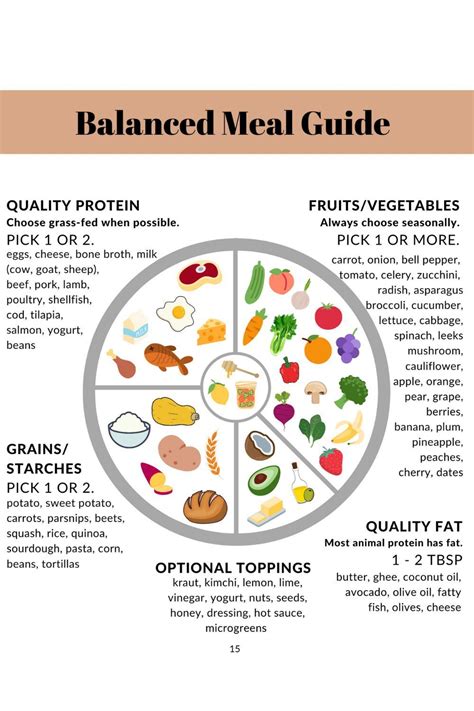What daily meal timing & macro split optimizes sustained energy and focus?

Understanding the Energy-Focus Connection
In our demanding modern lives, maintaining consistent energy levels and sharp mental focus is paramount for productivity and overall well-being. Far too often, we experience midday slumps, brain fog, or an inexplicable drop in concentration. While many factors contribute to these fluctuations, our daily dietary habits—specifically when we eat and what we eat—play a profoundly significant role. By strategically timing our meals and balancing our macronutrients (carbohydrates, proteins, and fats), we can create a nutritional blueprint that fuels sustained cognitive performance and physical vitality.

The Power of Consistent Meal Timing
The concept of meal timing extends beyond simply eating when you’re hungry; it involves creating a consistent pattern that supports stable blood sugar levels, which are crucial for preventing energy crashes. Irregular eating can lead to spikes and drops in glucose, impacting mood, concentration, and energy.
Key Principles for Optimal Meal Timing:
- Start Strong with Breakfast: Breaking your overnight fast with a balanced meal sets the metabolic tone for the day, kickstarting your brain and body.
- Regularity is Key: Aim for meals and snacks at consistent intervals, typically every 3-4 hours. This helps stabilize blood sugar and prevents extreme hunger that can lead to overeating or poor food choices.
- Listen to Your Body: While structure is helpful, adjust timing based on your individual hunger cues, activity levels, and work schedule.
- Mindful Evening Eating: Avoid heavy, late-night meals that can disrupt sleep and impact morning energy levels.
By providing your body with a steady supply of nutrients, you avoid the rollercoaster effect of energy peaks and valleys, allowing for a more sustained output throughout your day.

Optimizing Your Macronutrient Split
Beyond timing, the composition of your meals—the ratio of carbohydrates, proteins, and fats—is equally critical for sustained energy and focus. Each macronutrient plays a distinct role in fueling your body and brain.
Carbohydrates: The Brain’s Primary Fuel
Often misunderstood, carbohydrates are vital. The key lies in choosing the right type. Complex carbohydrates (whole grains, vegetables, legumes) provide a slow, steady release of glucose into the bloodstream, offering sustained energy. In contrast, simple sugars and refined carbs lead to rapid spikes and subsequent crashes.
- Ideal Sources: Oats, brown rice, quinoa, sweet potatoes, whole-grain bread, fruits, and vegetables.
- Timing Tip: Include a moderate portion of complex carbs at each main meal to maintain energy reserves.
Protein: The Foundation of Focus and Repair
Protein is essential for satiety, muscle repair, and the production of neurotransmitters that influence mood and concentration. Including protein in every meal slows down the absorption of carbohydrates, further promoting stable blood sugar.
- Ideal Sources: Lean meats, poultry, fish, eggs, dairy, legumes, tofu, nuts, and seeds.
- Timing Tip: Distribute protein intake evenly throughout the day, rather than consuming the majority in one meal.

Healthy Fats: Sustained Energy and Cognitive Health
Fats are an often-overlooked source of sustained energy, particularly beneficial for brain health. They contribute to satiety and provide essential fatty acids critical for cognitive function.
- Ideal Sources: Avocados, nuts, seeds, olive oil, fatty fish (salmon, mackerel), and coconut oil.
- Timing Tip: Incorporate healthy fats in moderation with meals to enhance satiety and provide a steady energy stream.

Putting It All Together: Practical Strategies
While individual needs vary, a generally effective macronutrient split for sustained energy and focus might look like 40-50% carbohydrates (predominantly complex), 25-35% protein, and 20-30% healthy fats. Adjust these ratios based on your activity level and personal response.
Actionable Tips:
- Balanced Breakfast: Combine complex carbs (oatmeal), protein (eggs or Greek yogurt), and healthy fats (nuts or avocado).
- Smart Snacking: Opt for nutrient-dense snacks like an apple with almond butter, Greek yogurt with berries, or a handful of mixed nuts to bridge gaps between meals.
- Lunch That Lasts: Build a lunch with lean protein (chicken, fish, legumes), plenty of non-starchy vegetables, and a modest serving of complex carbohydrates (quinoa, brown rice).
- Stay Hydrated: Don’t underestimate the power of water. Dehydration can mimic hunger and lead to fatigue and reduced focus.
- Pre-plan Meals: Preparing meals in advance can help ensure you consistently make optimal choices, especially during busy periods.
By consciously integrating these principles into your daily routine, you can significantly reduce energy dips and enhance your ability to concentrate and perform at your peak.

Conclusion: Fueling Your Best Self
Optimizing sustained energy and focus isn’t about restrictive diets; it’s about intelligent nutrition. By embracing consistent meal timing and a balanced macronutrient split, emphasizing complex carbohydrates, lean proteins, and healthy fats, you empower your body and brain to operate efficiently throughout the day. Experiment with these strategies to discover what works best for your unique physiology and lifestyle, transforming your daily energy and cognitive performance for the better.









